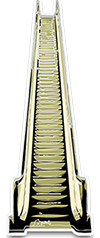
HK RESTAURANT CASE STUDY: STEP 4, SENIOR MANAGEMENT EXECUTIVE COACHING
With an imminent progression to the strategic stage of our Pawn Engagement project, Learning Curve involved the expertise of its internal Executive Coaching consultant to prepare a session with the three senior Pawn Managers. The objective of this ’team coaching’ session was to promote open discussion between managers while offering stimuli to dig deeper to ascertain root causes of impediments to growth.
A set of exploratory questions were developed by the Coach to promote dialogue and necessary debate between the dynamic team of three.
- Why is it important to improve?
- Where do you see the team now?
- Where do you want the team to be?
- What is the image you want to portray?
- What are the steps to get there?
- Where do you think the problems lie?
- What areas of service do you think has arisen on Secret Guest and Customer Feedback reports?
With only ninety minutes scheduled with the managers, it was important to create an environment of comfortability and ease between the Managers and the Coach, as they had not previously met. Prior to the meeting, the Coach had digested the data and qualitative feedback given by Learning Curve mystery diners, actual Pawn customers and the employees themselves.
The Learning Curve coach opened the forum by asking the Managers about their session expectations. Each Manager had a different need – one looking to understand new methods of communication, another wanting to understand the problems and receive assistance in developing an action plan, and the third was looking to learn about their service quality levels. The commonality between Managers – an expectation to be advised.
As previous blogs have demonstrated, coaching in this format is not an advisory consultation. It’s a time for questioning and self-counsel. Coaching conversations use structured questioning techniques to identify assets and issues and guide a team towards reaching their potential.
The coach began the discussion asking “what positive feedback do you think your guests are giving?”. The answers were interesting. They centred around tangible elements such as the venue, the food and the product. From our research, we understand almost 60% of guests noted intimacy of staff being a primary focus of positive comment.
When exploring more adverse aspects, the root cause assessments raised identity confusion as a key source of guest objections. Was the restaurant fine dining or casual? The decor certainly fits with ones image of a fine dining environment, however the service delivered, while knowledgeable and friendly, is more relaxed and spontaneous. It appeared that culinary-aware Hong Kongers weren’t sure how to characterise the Pawn. With clever questioning, the coach encouraged self-criticism in the Managers, revealing an obvious dichotomy of service style perception by guests.
With a fresh understanding that identity misperception may be responsible for guest grievances, the action plan fell simply into place. Priorities were set, responsibility for achievement was assigned and commitments agreed. The management team were clear in their direction to correct the identity confusion, starting with the floor staff. If they understand their product, chances are so much greater the guests will recognise it too.
While Learning Curve was able to initiate discussion and objectively explore previously unconsidered concepts, the hard work then moved into the back offices of the client organisation. The two significant resolutions made by the management group were to establish a clear identity and instill this vision in the team through empowerment, training and inspiring empathetic service in their staff.
Read previous blogs in this series:
HK RESTAURANT CASE STUDY: An Introduction – Employee Engagement in relation to Customer Engagement
HK RESTAURANT CASE STUDY: Step 1, Engagement Evaluation
HK RESTAURANT CASE STUDY: Step 2, Customer Engagement Training
HK RESTAURANT CASE STUDY: Step 3, Mystery Guest Reviews
Learning Curve, Keira Mackenzie-Smith and her team, develop tailored training programs for customer-focused industries in Hong Kong and throughout Asia


